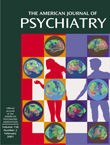Studies of Cognitive Change in Patients With Schizophrenia Following Novel Antipsychotic Treatment
Abstract
OBJECTIVE: Novel antipsychotic medications have been reported to have beneficial effects on cognitive functioning in patients with schizophrenia. However, these effects have been assessed in studies with considerable variation in methodology. A large number of investigator-initiated and industry-sponsored clinical trials are currently underway to determine the effect of various novel antipsychotics on cognitive deficits in patients with schizophrenia. The ability to discriminate between high- and low-quality studies will be required to understand the true implications of these studies and their relevance to clinical practice. METHOD: This article addresses several aspects of research on cognitive enhancement in schizophrenia, emphasizing how the assessment of cognitive function in clinical trials requires certain standards of study design to lead to interpretable results. RESULTS: Novel antipsychotic medications appear to have preliminary promise for the enhancement of cognitive functioning. However, the methodology for assessing the treatment of cognitive deficits is still being developed. CONCLUSIONS: Researchers and clinicians alike need to approach publications in this area with a watchful eye toward methodological weaknesses that limit the interpretability of findings.



